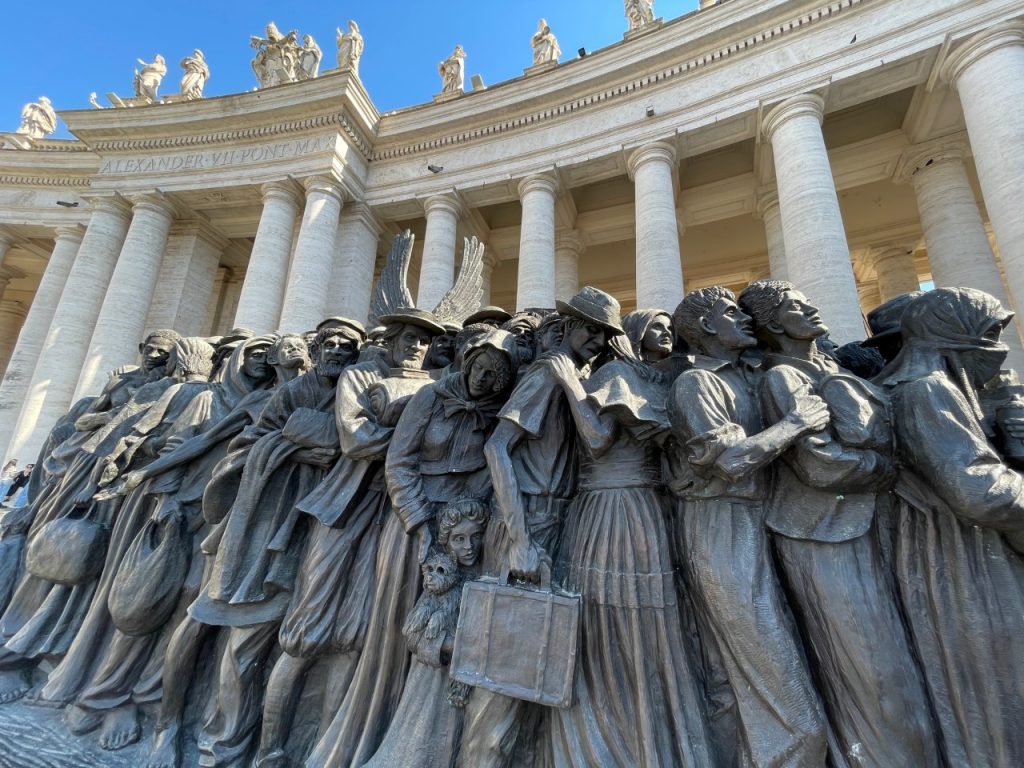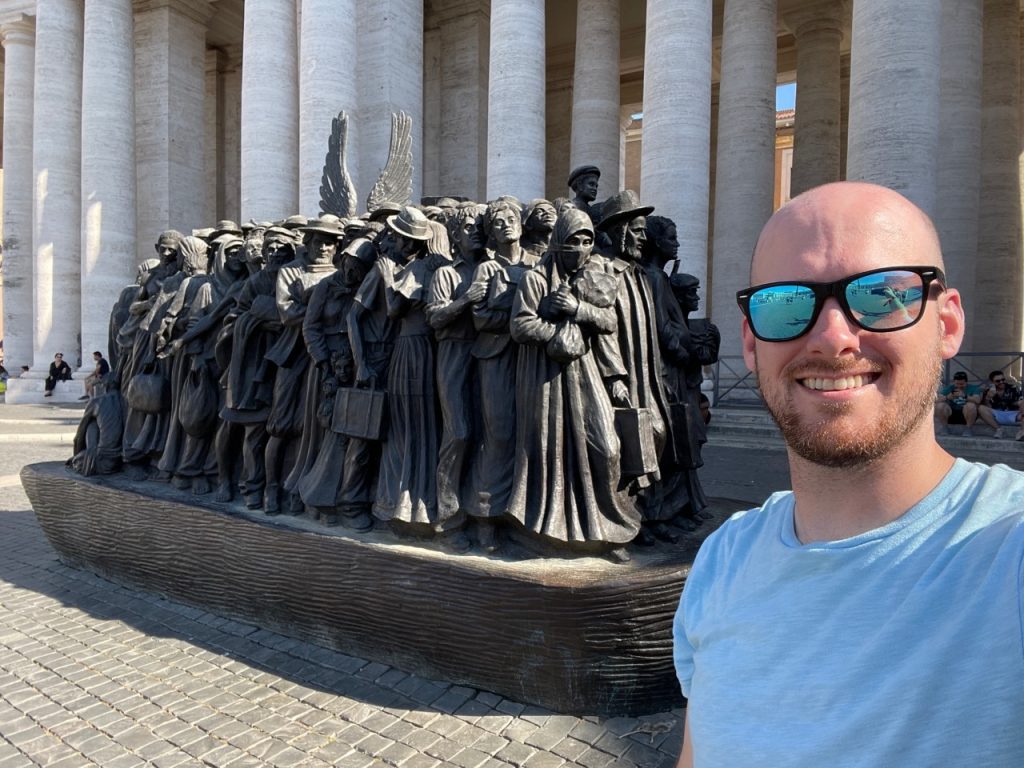“Be not forgetful to entertain strangers: for thereby some have entertained angels unawares.”
-Hebrews 13:2
There are few things more mysterious, frightening, and wonderful than an encounter with the divine. I wonder from time to time how I might respond. I wonder what I might learn about God and the world around me—about myself. I believe this is something we were created to both think about and, in certain ways, to experience.
The last year has been one of great transition and lifestyle change for my wife, Morgan, and me. Last Summer, we moved back to our hometown of Memphis, TN and I began my role with volunteer engagement at the local World Relief office. Between our transition and the impact of world events like the Afghanistan crisis on my work, we decided this was the year to book the trip to Italy we have wanted to take for some time now. I was very much looking forward to new experiences and to recharging by unplugging briefly from refugee resettlement matters which had consumed so much of my focus in the past year.
During our tour of Rome, we visited the Vatican City where we saw some of the most amazing religious artifacts and structures imaginable. But it was the piece we saw as we exited through St. Peter’s Square which provided the most spiritually intense experience of the day. Morgan caught a glimpse of a large, dark statue in the corner of the square which we proceeded to investigate. The structure resembled a small vessel, like an escape boat, crowded with people of all forms and origins. The name of the work was “Angels Unawares” and you can read more about it here. I won’t exhaust you with description but I will note that, as alluded to by the title, there is a lone pair of angel’s wings protruding from the crowd.

The sculptor, Timothy Schmaltz, describes his works as “visual prayers” and, whatever that means, I certainly felt it as I stared and pondered. I saw the faces depicted of immigrants and refugees from different centuries, cultures, and continents. Each face told a story—hope, fear, loss, dreams. In the center, the two wings, a reminder that where these people go, a divine presence is surely with them. This symbolizes what is written in Hebrews 13:2 that when we welcome strangers, we may in fact be welcoming angels.
For a long time, I was so puzzled by that passage. To some degree, it certainly is still mysterious. But when we look at the bigger message of God’s Word, I think we see a theme that helps us make sense of this biblical detail. Why would God have us entertain angels? Are these actual heavenly creatures being referred to? Why would they disguise themselves among strangers and foreigners?
To me, the heart of the answer lies with the person of Jesus himself. When God became a man, he took on the lowliest status (Phil. 2:6-8). In doing so, he taught us that those who are lowly possess indispensable value. Why come to us in a form we might perceive as less valuable if not to change our perception of a person’s value?
Our Christ was carried to a foreign land by his parents for fear of death (Matt. 2:13-23). This detail of Jesus’ life not only fulfilled an important prophecy but also proves to us that those who leave one country for another carry with them stories worth understanding. Why write this unique story into the life of our Savior if not to challenge us to understand the stories of those who sojourn among us?
Hebrews 13:2 suggests to us that our care for the foreigner is an encounter with the divine. If this seems like a radical insinuation, consider that Jesus took this idea even further when he described the final judgement in Matthew 25:35-40:
“For I was hungry and you gave me food, I was thirsty and you gave me drink, I was a stranger and you welcomed me, I was naked and you clothed me, I was sick and you visited me, I was in prison and you came to me.’ Then the righteous will answer him, saying, ‘Lord, when did we see you hungry and feed you, or thirsty and give you drink? And when did we see you a stranger and welcome you, or naked and clothe you? And when did we see you sick or in prison and visit you?’ And the King will answer them, ‘Truly, I say to you, as you did it to one of the least of these my brothers, you did it to me.’”
There is no question that Jesus has closely and permanently linked our pursuit of a holy life with care for the alien in our midst. There is something about compassion toward the vulnerable so integral to the heart of God that he placed them squarely on our narrow path to eternity with no way around them. Surely, if we want to encounter Christ himself, we must do so with the immigrant and the foreigner at our table. These promises also confirm to us that—when we inevitably experience vulnerabilities for ourselves—Jesus sees us, is near to us, and his love is directed to us.
I walked away from St. Peter’s Square that day challenged in regard to my daily life. But I also walked away hopeful because I was reminded that God has given me a very clear blueprint for how to receive and give his love in a practical way. When I welcome a stranger and love them as a neighbor, I am certainly welcoming Jesus himself into my rhythm of community. I might also be welcoming his angels—and what a blessing that would be.

Author: Carter Brinkley
Volunteer Coordinator at World Relief Memphis
If you are interested in learning more about what we do here at World Relief Memphis, join us for one of our monthly volunteer orientations:
Feeling called to make an impact but can’t donate your time? Learn more about joining our monthly giving program The Path.
